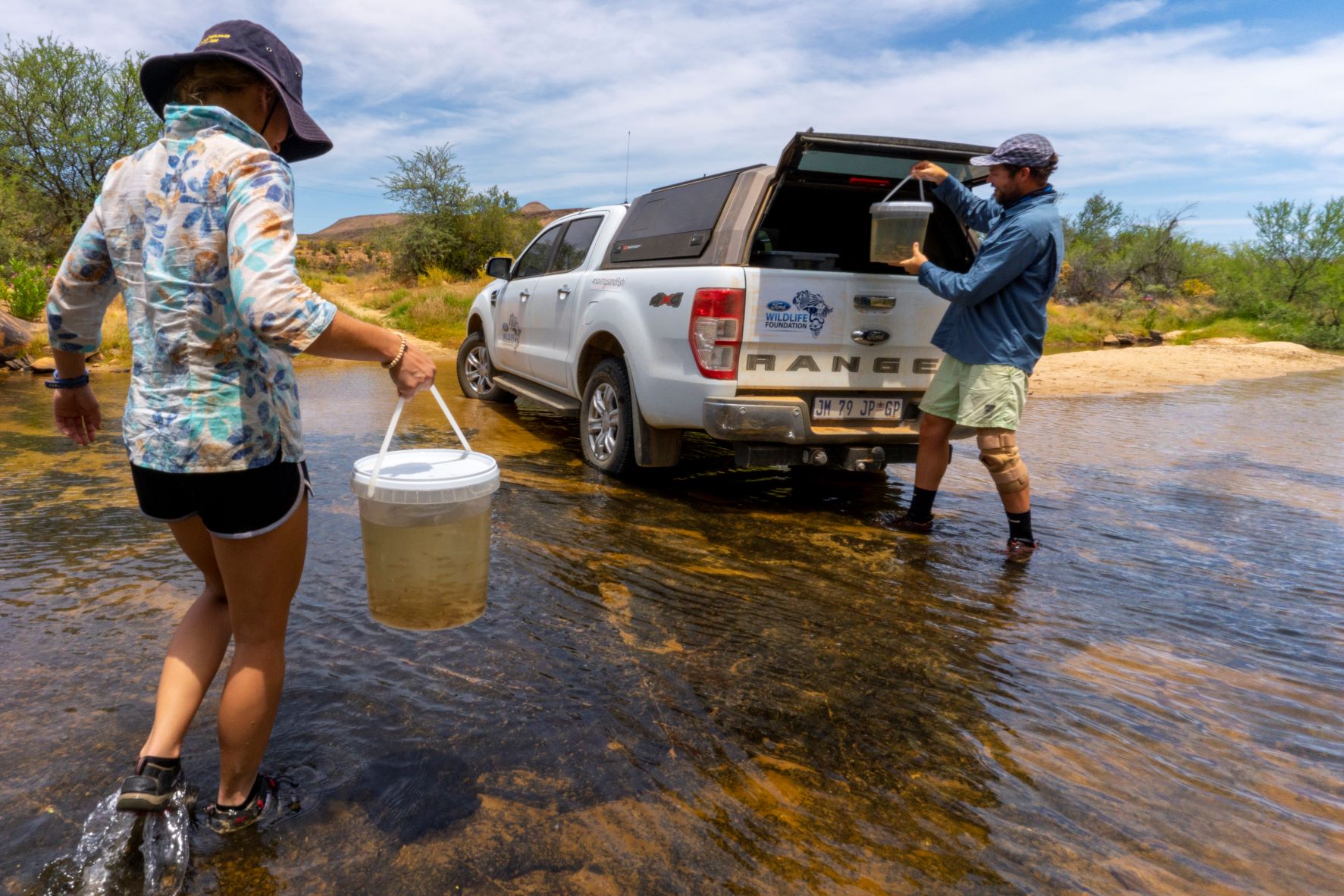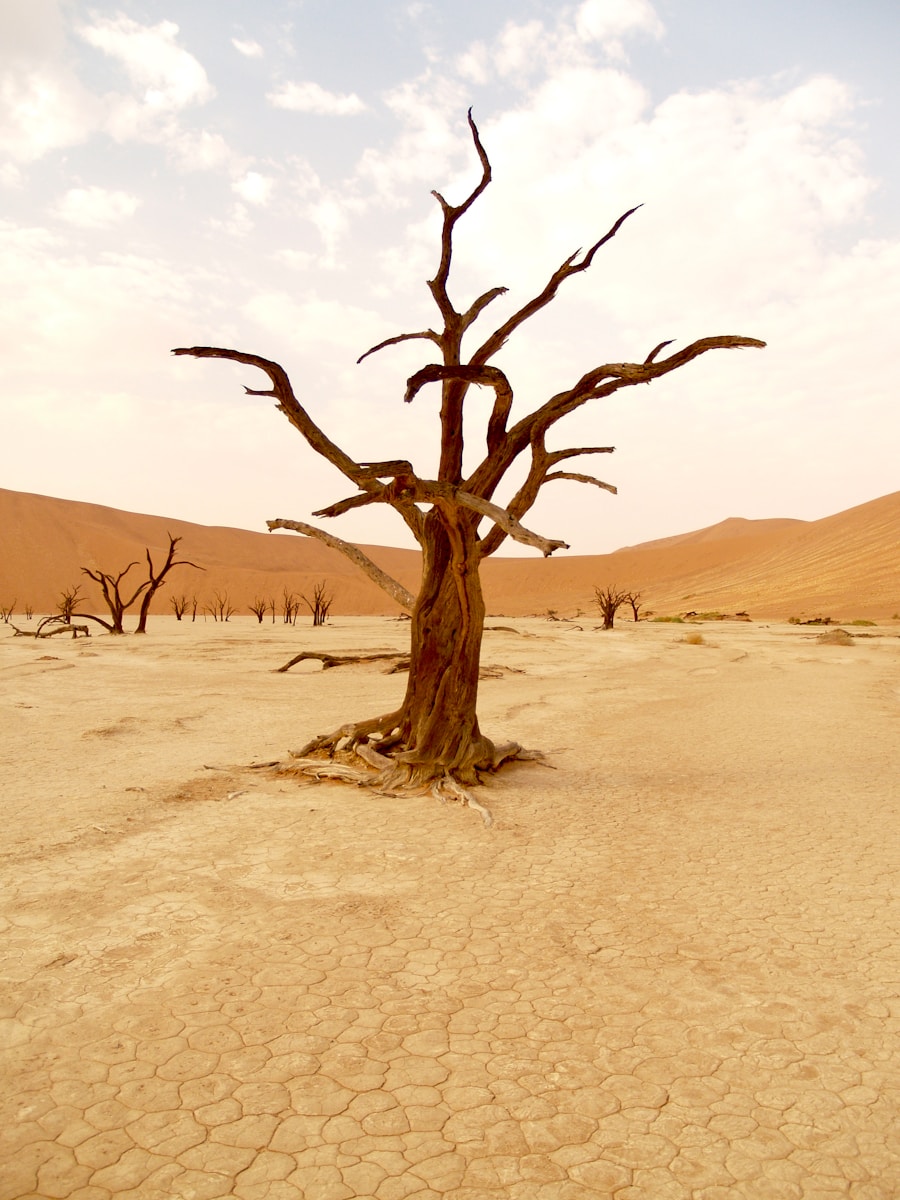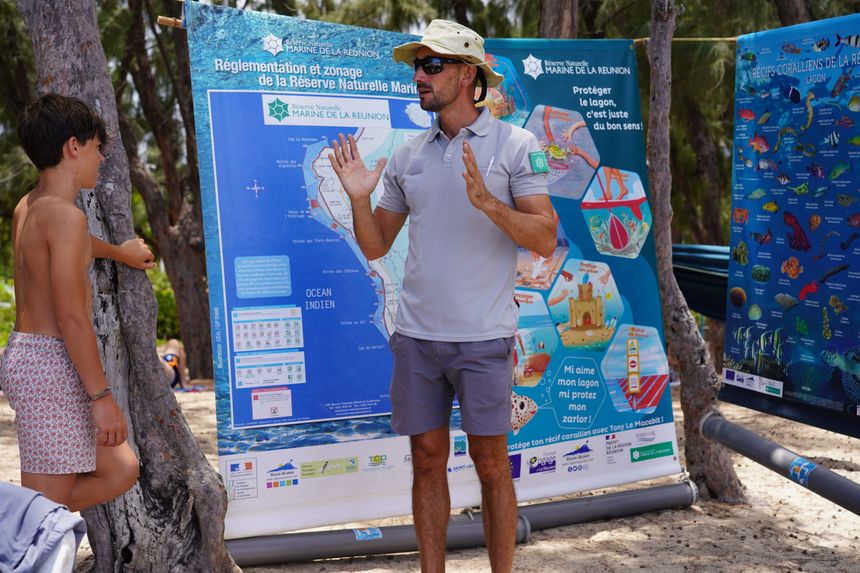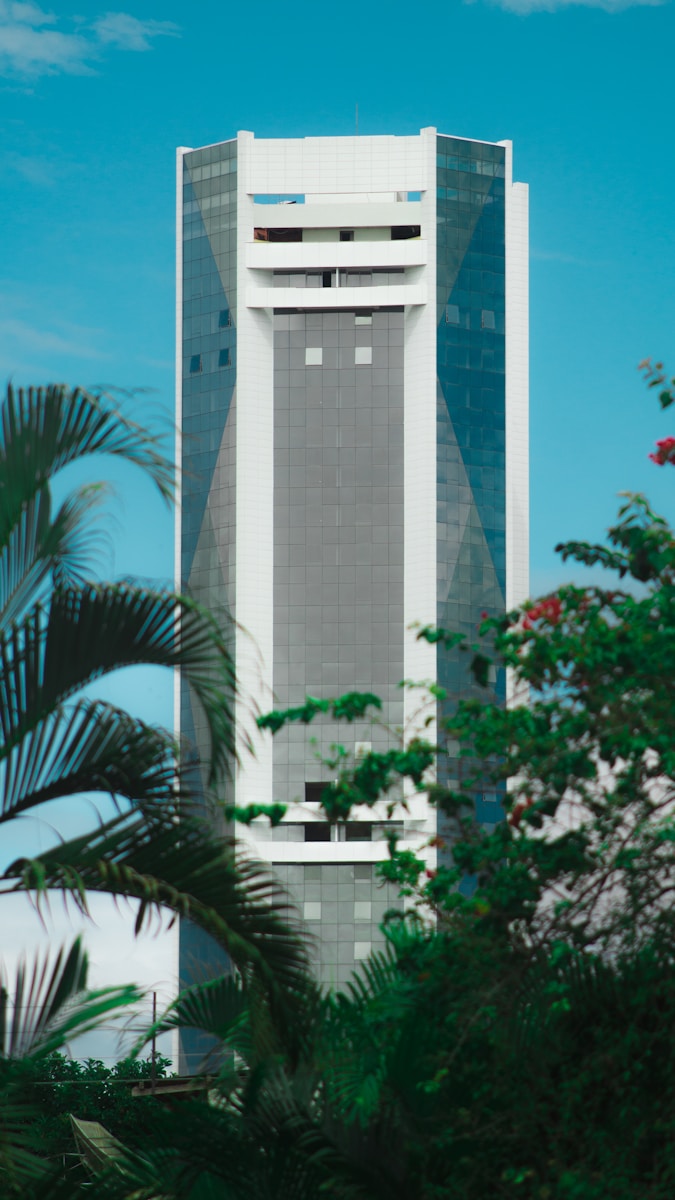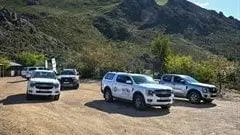
The Ford Wildlife Foundation (FWF) plays a vital role in supporting the Cape Leopard Trust (CLT), a South African NGO committed to conserving leopard populations and biodiversity in the Western Cape. Their partnership strengthens efforts to protect this elusive species and maintain ecological balance in one of the region’s most sensitive habitats.
1. Empowering Rangers for Effective Cape Leopard Conservation
Rangers are the frontline defenders of leopard habitats, and their empowerment is crucial for successful conservation. The Ford Wildlife Foundation provides resources, training, and logistical support that enhance ranger effectiveness. This includes equipping rangers with tracking technology, communication tools, and safety gear, enabling them to monitor leopard populations and deter poaching activities efficiently. Through ongoing capacity building, rangers become better prepared to handle the challenges of wildlife conservation in rugged terrain and unpredictable environments, ensuring sustained protection of Cape Leopard populations.
2. Community Engagement and Education Initiatives
FWF and CLT understand that community involvement is key to long-term conservation success. Education programs target local communities to raise awareness about the ecological importance of leopards and biodiversity. Workshops, school outreach, and community meetings foster coexistence and reduce human-wildlife conflict. By promoting conservation-friendly livelihoods and emphasizing the economic benefits of eco-tourism, these initiatives help build local support for protecting leopards, which is essential for the sustainability of Cape Leopard Conservation efforts.
3. Research and Data-Driven Conservation Strategies
Accurate data collection is fundamental to effective conservation planning. The Ford Wildlife Foundation supports CLT’s research projects that utilize camera traps, GPS collars, and ecological surveys to gather vital information on leopard behavior, population dynamics, and habitat use. This scientific approach enables the development of targeted conservation strategies that address threats such as habitat fragmentation and human encroachment. Data-driven decision-making ensures resources are allocated efficiently, maximizing the impact of conservation activities.
4. Habitat Restoration and Protection Efforts
Preserving and restoring leopard habitats is a cornerstone of Cape Leopard Conservation. FWF assists in protecting key ecological corridors and implementing habitat restoration projects that improve biodiversity and ecosystem health. Efforts include reforestation, invasive species control, and water source rehabilitation. By maintaining a connected and healthy environment, these actions support leopard movement and breeding success, contributing to the resilience of the species and the broader ecosystem.
5. Advocacy and Policy Support for Wildlife Protection
Advocating for stronger wildlife protection policies is another critical component of the Ford Wildlife Foundation’s support. FWF works alongside CLT to engage policymakers, influence legislation, and promote enforcement of anti-poaching laws. This collaboration helps create an enabling environment for Cape Leopard Conservation, ensuring legal frameworks support ranger activities and community engagement, and provide deterrence against wildlife crimes.
For detailed information, visit Bizcommunity.
Stay updated with related conservation news at Mauritiusbizmonitor Latest Articles.
6. Strengthening Ranger Training Programs for Cape Leopard Conservation
The Ford Wildlife Foundation continuously enhances ranger training programs to equip them with the latest skills and knowledge necessary for effective Cape Leopard Conservation. These programs focus on wildlife tracking, anti-poaching techniques, first aid, and community interaction skills. Well-trained rangers can respond better to threats and manage human-wildlife conflicts, ensuring both leopard protection and community safety. This investment in human capital strengthens the frontline defense against poaching and habitat degradation, directly benefiting leopard survival in the Western Cape.
7. Leveraging Technology in Cape Leopard Conservation Efforts
Embracing technological advancements, the Ford Wildlife Foundation supports the integration of innovative tools in conservation work. This includes the use of drones for aerial surveillance, advanced GPS tracking devices for monitoring leopard movements, and mobile apps for real-time data collection. Technology increases the efficiency and coverage of conservation activities, allowing rangers to detect and respond to threats more swiftly. Moreover, it facilitates better data sharing and collaboration among conservation stakeholders, enhancing the overall impact of Cape Leopard Conservation initiatives.
8. Promoting Sustainable Eco-tourism to Support Conservation
Sustainable eco-tourism is a vital strategy supported by the Ford Wildlife Foundation to fund and promote Cape Leopard Conservation. By encouraging responsible tourism practices, the foundation helps generate revenue that can be reinvested into conservation programs and community development. Eco-tourism also raises global awareness about the importance of protecting leopards and their habitats. Carefully managed tourism ensures minimal environmental impact while providing economic incentives for local communities to support conservation efforts.
9. Building Partnerships for Broader Conservation Impact
The Ford Wildlife Foundation actively collaborates with governmental agencies, NGOs, local communities, and international partners to amplify Cape Leopard Conservation outcomes. These partnerships facilitate resource sharing, joint research projects, and coordinated action plans. By working together, these stakeholders can address broader ecological challenges such as climate change, land-use pressures, and wildlife trafficking. The collective effort strengthens conservation resilience and promotes a holistic approach to protecting leopards and biodiversity in the Western Cape.
10. Monitoring and Evaluating Conservation Success
Ongoing monitoring and evaluation are critical to measuring the effectiveness of conservation interventions. The Ford Wildlife Foundation supports the development of robust monitoring frameworks that track key indicators like leopard population trends, habitat quality, and community attitudes. Regular assessments enable adaptive management, where strategies are refined based on outcomes and emerging challenges. This evidence-based approach ensures that Cape Leopard Conservation efforts remain impactful and responsive to the dynamic environmental and social context.
11. Cape Leopard Conservation: Engaging Local Communities for Sustainable Protection
Community engagement is a cornerstone of effective Cape Leopard Conservation. The Ford Wildlife Foundation (FWF) works closely with local communities to foster a sense of stewardship over leopard habitats. Through education programs and participatory conservation initiatives, community members gain awareness of the ecological importance of leopards and the benefits of biodiversity preservation. FWF supports workshops that teach conflict mitigation techniques, helping residents coexist peacefully with wildlife. This collaboration also promotes alternative livelihoods such as eco-tourism and sustainable agriculture, which reduce human pressures on leopard habitats. By building strong, trust-based relationships, FWF ensures that conservation efforts are culturally sensitive and sustainable over the long term, with local people actively participating as custodians of their natural environment.
12. Cape Leopard Conservation: Enhancing Anti-Poaching Measures Through Innovation
Anti-poaching efforts are critical for protecting the vulnerable leopard populations in the Western Cape. The Ford Wildlife Foundation bolsters these efforts by providing rangers with cutting-edge equipment and training designed to detect and prevent illegal activities. This includes night vision goggles, GPS trackers, and communication systems that improve ranger safety and operational efficiency. Innovative surveillance technologies such as drones and motion sensor cameras are deployed to monitor critical areas, enabling rapid response to poaching threats. Furthermore, FWF facilitates intelligence sharing networks that connect rangers, law enforcement, and community informants. These measures collectively strengthen the enforcement of wildlife protection laws, deterring poachers and preserving the Cape Leopard’s fragile ecosystem.
13. Cape Leopard Conservation: Leveraging Scientific Research to Inform Strategies
Scientific research is the foundation of adaptive Cape Leopard Conservation. FWF collaborates with academic institutions and conservation scientists to conduct field studies that reveal vital insights into leopard behavior, population dynamics, and habitat requirements. These studies employ GPS collaring, camera trapping, and genetic sampling to gather comprehensive data. The research findings inform management decisions, such as identifying critical corridors for protection and designing targeted interventions to reduce human-wildlife conflict. Additionally, FWF supports the publication and dissemination of research results to stakeholders, ensuring transparency and fostering evidence-based policy development. By grounding conservation efforts in robust science, FWF enhances the effectiveness and sustainability of leopard protection initiatives.
14. Cape Leopard Conservation: Supporting Habitat Connectivity for Wildlife Movement
Maintaining connected habitats is essential for the survival of Cape Leopards, allowing them to roam, hunt, and reproduce effectively. The Ford Wildlife Foundation champions efforts to preserve ecological corridors that link fragmented landscapes. This includes collaborating with landowners, government agencies, and NGOs to secure conservation easements and promote land-use practices that prioritize habitat connectivity. FWF also supports restoration projects that rehabilitate degraded areas, remove invasive species, and improve water sources. These activities enhance biodiversity and ecosystem resilience, benefiting not only leopards but numerous other species. By fostering habitat connectivity, FWF helps sustain the natural processes vital for the long-term viability of Cape Leopard populations.
15. Cape Leopard Conservation: Fostering Policy Advocacy for Wildlife Protection
Effective conservation requires strong policy frameworks and enforcement mechanisms. The Ford Wildlife Foundation actively engages in policy advocacy to support Cape Leopard Conservation at local, regional, and national levels. FWF collaborates with governmental bodies to influence legislation that protects leopard habitats, regulates hunting, and enhances penalties for wildlife crimes. The foundation also facilitates stakeholder dialogues and public awareness campaigns that highlight the importance of wildlife conservation. Through these advocacy efforts, FWF helps build political will and community support necessary for effective governance. Strong policies combined with on-the-ground conservation work create a comprehensive approach to safeguarding the Cape Leopard and its environment.
For more detailed updates, visit Bizcommunity.
Explore further conservation stories at Mauritiusbizmonitor Latest Articles.

